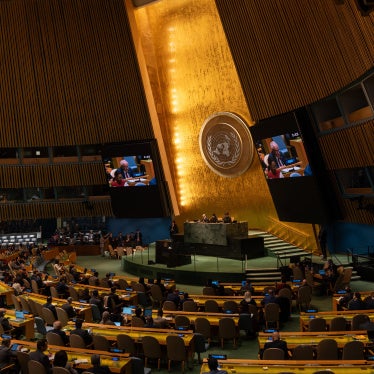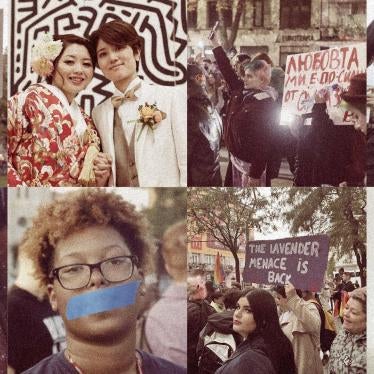The United Nations Security Council has a unique opportunity to correct its historic failure to address sexual violence against women and girls in conflict, Human Rights Watch said today.
“Many recent conflicts on the Security Council’s agenda show exactly how sexual violence is used as weapon of war, to terrorize people,” said Marianne Mollmann, advocacy director for women’s rights at Human Rights Watch. “But the council’s response has too often been: ‘Not our problem.’”
Since 2000, the Security Council has in principle recognized the relevance of sexual violence to its work, but has done little to effectively prevent and address such violence. In recent actions on Côte d’Ivoire and Sudan, for example, the Security Council failed to raise sexual violence at all as an issue of concern, despite overwhelming evidence that rape and other forms of sexual abuse against women and girls have been committed by various groups in the conflict. The main exception to this has been the council’s most recent resolution on the conflict in the Democratic Republic of Congo, where it raised serious concerns about widespread sexual violence in that country.
In May and June, the Security Council will have several opportunities to take decisive steps to prevent and address sexual violence. On May 27, Holmes speaks at an open meeting at the Security Council while at Wilton Park in the United Kingdom, military peacekeepers from several countries meet to discuss how the United Nations can provide more effective protection for women in war, and what peacekeeping forces need from the Security Council to achieve this. And the United States, which holds the council presidency in June, has indicated its intention to bolster action at the Security Council to prevent sexual violence in conflict, with US Secretary of State Condoleezza Rice leading the council in a discussion on this topic on June 19.
The focus on this relatively neglected issue could lead the council to adopt concrete measures to address sexual violence more decisively and coherently. The most effective way to do this would be the establishment of a permanent subsidiary body or other mechanism linked directly to the Security Council, with a mandate to report on and monitor instances of sexual violence in conflict. In 2005, the Security Council set up such a mechanism to monitor and report on, in particular, the recruitment and use of child soldiers. While this mechanism has not escaped criticism, it has certainly increased Security Council attention on the issue of child soldiers.
“The Security Council now says it wants to end sexual violence in war, but good intentions aren’t enough,” said Mollmann. “Women and girls who’ve been abused don’t need words from diplomats, they need action. It’s now time for the Security Council to meet the challenge of ending rape in war.”







